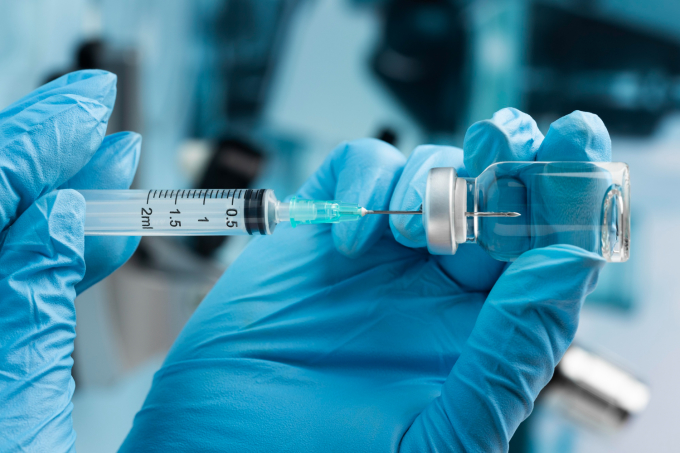Australian researchers have developed a vaccine to prevent the Epstein-Barr virus (EBV), which causes the "kissing disease" and multiple sclerosis and lymphoma.
EBV is a member of the herpes family and is one of the most common pathogens that infect humans. There is no specific treatment for the virus. It usually enters the body of young children and remains dormant in B cells (the body's key to preventing infectious diseases) for life. EBV causes infectious mononucleosis (IM), also known as the "kissing disease" because it is transmitted mainly through saliva.

Illustration of experimental EBV vaccine. Photo: Freepik
In its acute form, IM is usually benign. In its chronic form, the "kissing disease" is a risk factor for multiple sclerosis (MS) and Hodgkin's lymphoma. The virus is also associated with lymphomas and epithelial cancers, accounting for about 1.5% of all EBV-associated cancers worldwide ; ear infections and diarrhea in children.
EBV vaccine research has been difficult in the past. Various vaccine formulations have been tested in animals and humans, but none have been effective in preventing infection, and no approved vaccine has yet been developed. Another challenge is that vaccines use viral proteins as “raw material” to stimulate the immune system, while EBV is directly linked to tumor formation and growth. Therefore, incorporating all of the protein components into the injection could increase the risk of cancer.
However, research recently published in the journal Nature shows that, When tested on mice, the vaccine helped create neutralizing antibodies to block the virus from entering cells, while also creating a strong immune response to destroy cells where the virus was hiding. This effect lasted for 7 months.
Experts hope the vaccine can reduce EBV-related diseases in people as they age. Scientists say the vaccine still needs further testing to prove its effectiveness in humans, including safety, effectiveness against disease, and the possibility of worsening.
Chile (According to Medical News Today, WebMD, NHS )
Source link





























![[Photo] National Assembly Chairman attends the seminar "Building and operating an international financial center and recommendations for Vietnam"](https://vphoto.vietnam.vn/thumb/1200x675/vietnam/resource/IMAGE/2025/7/28/76393436936e457db31ec84433289f72)







































































Comment (0)